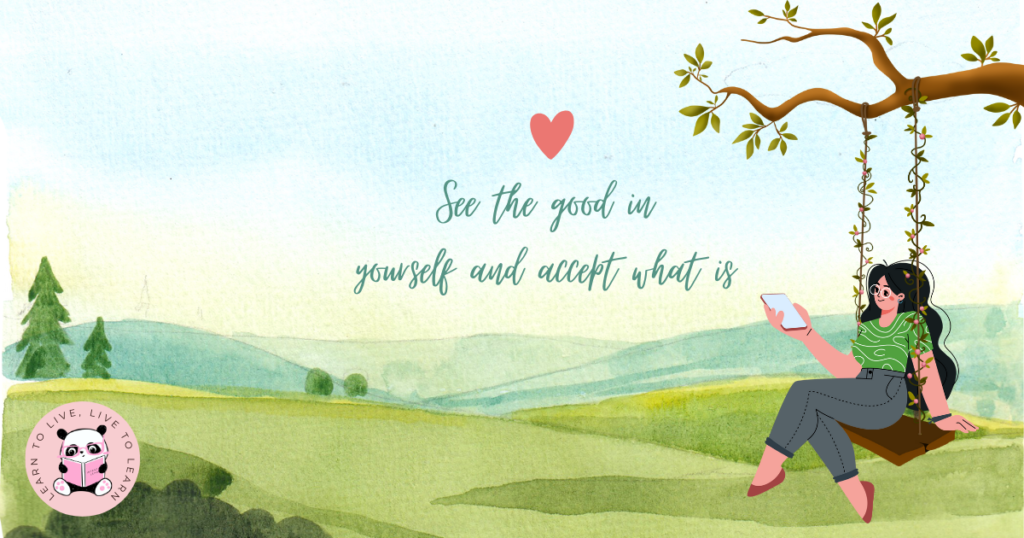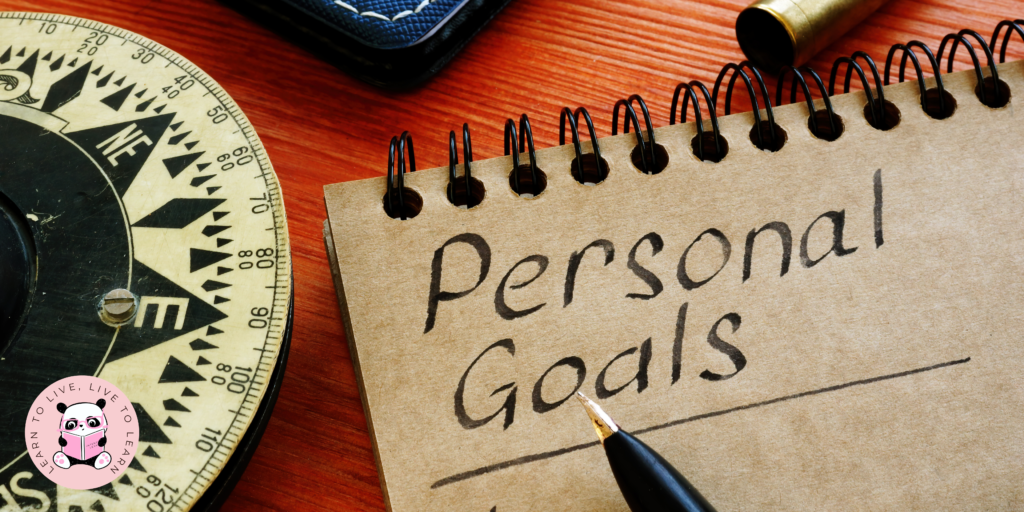Is It Realistic To Have A Simple, Stress-Free Life
Written by Michelle Ong | March 10, 2024 | Growth, Wellness

Life can feel like a rollercoaster ride sometimes, with its ups and downs, challenges, and problems that just keep popping up. Discover the golden rules for living a simpler, stress-free life.
Feeling overwhelmed by responsibilities and commitments? Do you wish for a simpler, stress-free life? Simplifying life might seem impossible in today’s fast-paced world, but it’s within reach. It all starts with a shift in mindset. Let’s explore why simplicity feels out of reach for some and uncover key strategies to help you simplify and find contentment.
1. Prioritize You
“A simple life is not seeing how little we can get by with—that’s poverty—but how efficiently we can put first things first.”
Victoria Moran
Your relationship with yourself sets the tone for every other relationship you have. It’s important to show yourself some love and care. Set aside some time just for you in your daily routine, where you can recharge and relax. This “me time” is crucial for building up your strength to face whatever life throws your way.
Remember, taking care of yourself first means you’ll have more to give to others later on. It doesn’t mean me first, it means me too. So, put yourself at the top of your to-do list every single day and the rest will fall into place.
2. Independence
Achieving independence in all aspects of life plays a big role in keeping things simple and stress-free. When we rely too much on others or external factors, it can lead to a lot of stress and worry. That’s why it’s crucial to aim for independence, whether it’s in our thoughts, emotions, or finances.
Breaking free from toxic relationships and people who bring us down is a big step towards simplifying life. These kinds of relationships can drain our energy and add unnecessary stress. Similarly, avoiding unnecessary debt and living within our means helps to reduce financial stress and allows us to focus on what truly matters.
By prioritizing independence and making choices that support it, we create space for calm and peace to enter our lives. It’s about taking control and making decisions that align with our values and goals, ultimately leading to a simpler and more fulfilling life.
3. Minimalism
Simplifying your life is all about clearing out the clutter, whether it’s physical stuff, digital overload, or even mental stress. Think of it like making room for what really matters to you. When it comes to buying things, stick to what you need to avoid creating unnecessary mess. And the same goes for commitments. Don’t pile on too many responsibilities that you can’t handle. It’ll only leave you feeling drained and overwhelmed.
Try to simplify your desires too. Focus on what truly brings value to your life instead of chasing after every little thing. Let go of stuff, commitments, and distractions that don’t align with your priorities. Before you bring something new into your life, ask yourself if it really fits with who you are and where you want to go.
Remember, life is always changing. So, try not to overload yourself with too many goals. Instead, make routines that work for you and focus on what truly matters most. Learn to tune out the noise and prioritize what’s essential. And most importantly, don’t bite off more than you can chew. It’s okay to say no sometimes!
Similarly, to prevent overwhelming yourself with too many tasks, steer clear of multitasking. Embrace Zen principles like wabi-sabi and ichigyo-zanmai to take things slow, simplify, and focus on doing one thing at a time.
4. Healthy Habits
Taking care of yourself is key to living a simpler, happier life. It’s about making sure you eat well, get enough exercise, and sleep properly. Don’t overdo it with work; find a balance between work and relaxation. Take time to unwind and do things that bring you joy, like reading or learning something new. By staying healthy, you can avoid getting sick, which can complicate things and make life harder than it needs to be.
Don’t forget to make time for self-reflection and meditation. Spend some moments recharging in nature too. These practices can help you feel calm and at peace inside. Plus, they can improve how well you handle your emotions.
5. Patience
Being patient is super important in everything you do. It’s a big part of self-control. When you’re patient, you stick to your plans and keep going, even when things get tough. Instead of rushing to conclusions or guessing, patience helps you take a step back and think things through. Life’s full of bumps, but patience helps you stay calm and figure out what to do next. Remember, take your time!
6. Stand Your Ground
It’s important to be brave and stand up for yourself by saying no when you need to. Setting boundaries is key. Don’t be afraid to decline things you don’t want to do. Your time and energy are precious, so it’s okay to protect them.
If someone tries to guilt-trip you into doing something you’re not comfortable with, stay firm. You’re not obligated to fulfill their wishes. Stick to your guns and trust your instincts. Don’t let others sway you from what you know is right for you. It’s your life, after all!
7. Look At The Sunny Side
“The art of being wise is the art of knowing what to overlook.”
William James
Train yourself to see the sunny side of life as much as you can. It’s like giving yourself a mental tidy-up! Don’t sweat the small stuff, and when things go awry, chuckle at yourself instead of getting all worked up.
Look for the silver linings in every situation, focusing on what you can learn from the bumps in the road instead of getting stuck in a negative thought loop. And hey, next time you feel annoyed or mad, why not crack a joke and have a good laugh? It’s like hitting the reset button on your mood!
Make it a habit to give praise and say nice things about others when you notice something good they’ve done. It’s like spreading good vibes! But remember, don’t go overboard with it.
Be generous and share with others. Focus on giving instead of always expecting something in return, and you’ll see good things come your way. Try not to get too caught up in what you’ve gained or lost. Appreciate what you have now and look ahead to what’s coming next. And don’t sweat the small stuff. Keep your eyes on the bigger picture!
8. Silence Is Golden
When you’re in a tough spot and feeling heated, it’s sometimes best to zip it and keep quiet. Holding back from saying something negative can save you from embarrassment and potential regrets down the line. Plus, staying silent shows that you can keep your cool even when things get tough, which earns you respect from others.
Sure, it’s not always easy—our natural instinct is to react quickly when things go awry. But with practice, you can learn to control your emotions and steer clear of lashing out in anger.
9. It Is Not Personal, Be Kind
It’s important to stay open-minded and forgiving when others make mistakes or unintentionally upset you. Instead of immediately assuming the worst about them, try to understand where they’re coming from and give them the benefit of the doubt.
Don’t take everything personally or view everyone who causes you distress as an enemy. And don’t worry about what other people are thinking about you, because everyone is only thinking about themselves. Check out this article to learn more tips on how to stop caring too much about what others think.
Remember that people have their own reasons for their actions, even if they seem wrong to you. However, it’s also important to be cautious and protect yourself from potential harm. By being understanding yet cautious, you can simplify your life and avoid seeing hostility everywhere you go.
10. Change Is A Constant
“Health is the greatest gift, contentment the greatest wealth, faithfulness the best relationships.”
Buddha
Let’s remember that stuff doesn’t last forever. Change is normal and part of life. Instead of chasing after more things, let’s aim for contentment and enjoy the little things in life.
Let’s cherish our relationships and be happy with what we’ve got. Being too hung up on stuff just weighs us down. Remember, change is always around the corner, so it’s good to keep things simple and flexible!
11. Skepticism
It’s smart to be skeptical of things people say or what you hear until you’ve checked them out yourself. Especially if something sounds too good to be true! Being cautious like this helps keep unnecessary clutter—like lies or false promises—out of your life. Stay curious and always dig deeper to find the truth!
12. Do What You Say
Be precise in what you say and do. Don’t just talk without meaning or act without purpose. Don’t make promises if you have no intention of keeping them. It might not mean anything to you but it could mean a whole world to someone else.
Take the time to clearly express your thoughts and experiences to yourself and others. This helps you move forward more effectively toward your goals. Know exactly what you want in any situation and be ready to communicate it clearly. Being honest with yourself and others is key. Pay attention to your actions and words, and be sensitive to others’ feelings and challenges.
When faced with tough situations, focus on your goals and dreams to find solutions. Taking responsibility for your actions is important, but don’t be too hard on yourself if you make mistakes. When you follow through on your promises, people will take you seriously and respect you. This can lead to fewer complications and less stress in your life.
13. Say Thank You
a) Appreciate Others
Say thank you. It’s important to show others that you appreciate them. Even though some cultures might not be as open about expressing gratitude, saying thank you goes a long way. It shows that you recognize and value the good things someone does for you, which helps build strong relationships. Plus, it keeps misunderstandings at bay and prevents others from feeling unappreciated. So, don’t hesitate to say thanks—it’s a simple gesture that can make a big difference!
b) Appreciate Yourself
It’s important to appreciate yourself for the effort you put into growing. This helps boost your self-worth and confidence. Take time to appreciate what you have and the experiences you’ve gained. Enjoy the present moment and acknowledge the progress you’ve made in different parts of your life.
Remember that real happiness comes from within, not just from external successes or things you own. Find a balance between being content with what you have and aiming for personal growth. Stay grateful for what you have while still working towards your goals.
14. Think Long-Term
It’s smart to stay prepared for whatever life brings your way. Thinking ahead and considering the long-term effects of your actions is important. It helps you see potential obstacles and plan how to overcome them, reducing the chances of problems and setbacks.
Planning ahead helps you deal with unexpected events and reduces stress. When you have a plan, you’re less likely to feel anxious or overwhelmed by surprises.
Plus, being prepared lets you be proactive and ready to face challenges head-on. It helps you stay calm and think clearly, even in tough situations. So, take the time to plan ahead and set yourself up for success!
Check out this post for tips on long-term planning and steering toward your dream life.
15. Do Your Best
“The happiest people don’t have the best of everything, they make the best of everything.”
It’s often more helpful to focus on making progress and doing our best in the moment. That way, we can move forward without getting stuck in the cycle of procrastination and high expectations.
When you give your best effort, you won’t be so hard on yourself. You won’t waste time dwelling on regrets or what could have been if you had done more. Instead, you’ll feel content and able to concentrate fully on what you’re doing.
And when you succeed or accomplish something, you’ll be able to truly enjoy the satisfaction that comes with it. You’ll savor the feeling of fulfillment and reward even more because you know you’ve put in your best effort.
Check out this post for practical strategies to help you thrive in life.
16. Trust Yourself
Believe in yourself and trust that you can make wise decisions. When you trust yourself, you won’t take things personally. Own your choices, and if things don’t go as planned, don’t beat yourself up over it. Instead, see it as a chance to learn and grow. Remember, you’re in charge of your decisions, just as others are responsible for theirs.
When you have faith in yourself, you’ll feel less guilty or judgmental about your actions. Self-love is key here. The more you love yourself, the less you’ll criticize yourself. It’s important to be kind to yourself and treat yourself with the same compassion you’d show to others.
Sometimes, we all need a little pep talk, right? So, why not be your own cheerleader? Every day, take a moment to say some nice things to yourself. Remind yourself that you’re awesome and that you can handle whatever comes your way. Tell yourself, “You got this!” and “You can do it!” Believe in yourself, because you’re capable of amazing things. And hey, listening to positive affirmations can really boost your mood and mindset too! So, keep those good vibes flowing and cheer yourself on!
17. Be Authentic
Being real and honest with others is key to building trust and strong relationships. When people know they can count on you to be truthful, it makes life simpler and more fulfilling.
But remember, it’s also important to be cautious. Not everyone has your best interests at heart. Some folks might try to take advantage of your openness for their own gain or out of envy. So, while it’s great to be honest, it’s smart to use your judgment and be careful about who you trust with sensitive information.
Can We Realistically Attain A Simple, Stress-Free Life?
“Simplicity is the ultimate sophistication.”
Leonardo da Vinci
Life is rarely simple, but simplifying it is possible with the right strategies. It’s about taking action when needed and knowing when to hold back. Focus on what you can control and let go of what you can’t. This balance leads to a less complicated, more fulfilling life.
For more on simplifying life and finding balance, check out my posts on decluttering and integrating Zen philosophy into your daily routine.
Our goals, environment, and experiences shape how we view the world and influence our mindset. While natural talents help, they’re not the only factors in our journey. Embracing the “less is more” principle is key—finding what “just enough” means to us can guide us toward contentment. Learn about these factors in this article exploring why we tend to be too hard on ourselves.
Did you enjoy this article? Please like and share it so others can benefit from it too! Follow me on Pinterest to stay updated on my latest posts!


